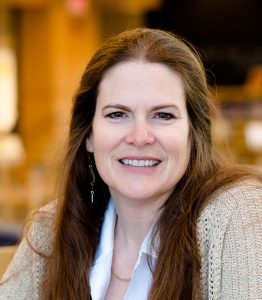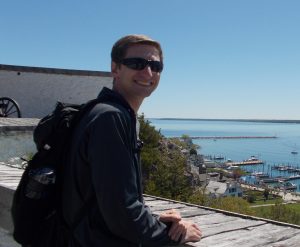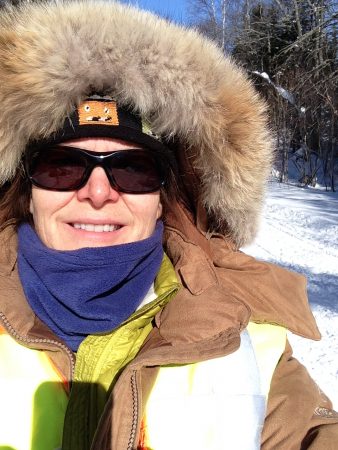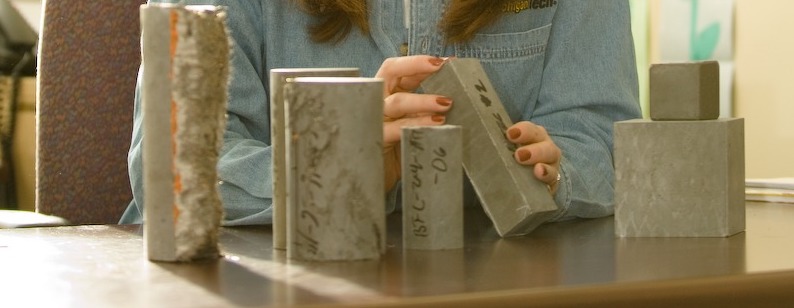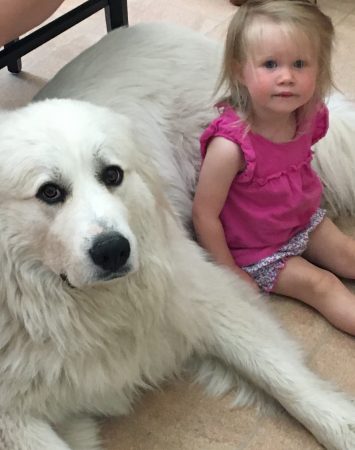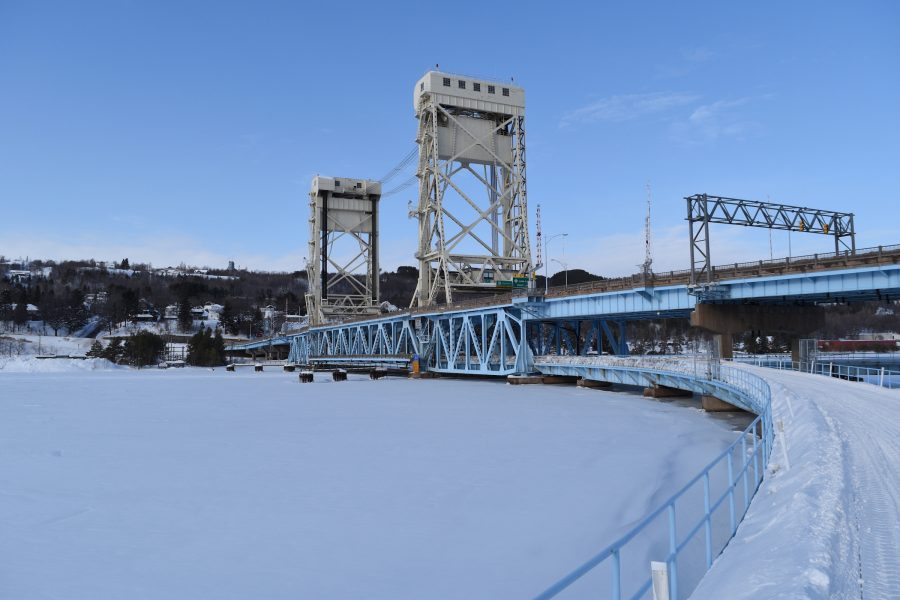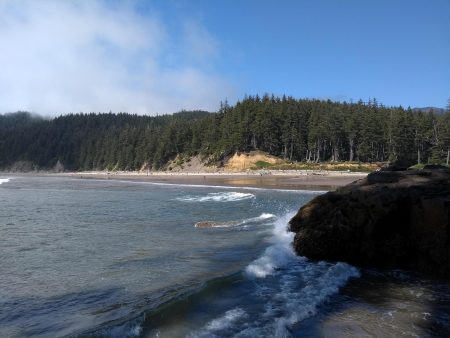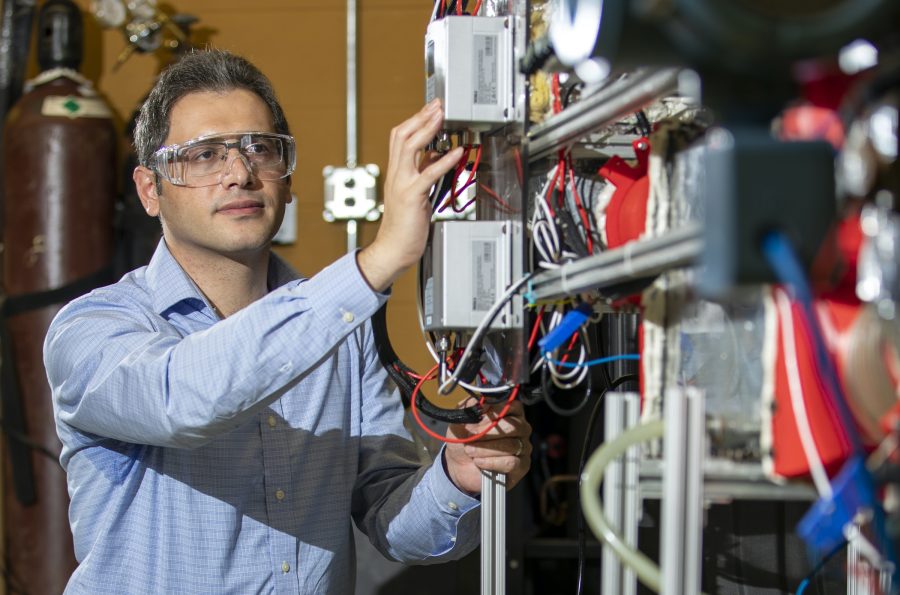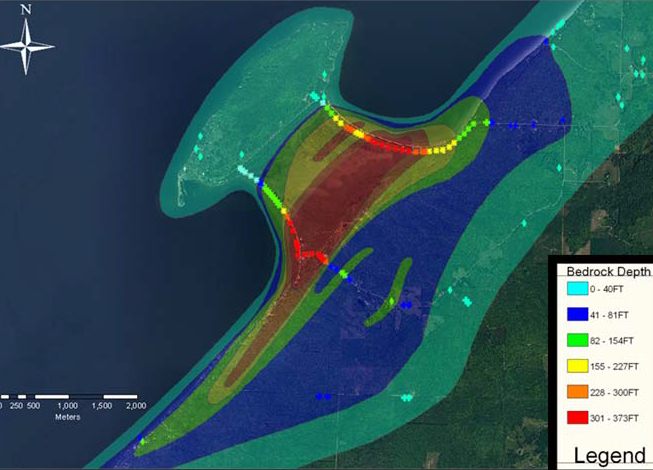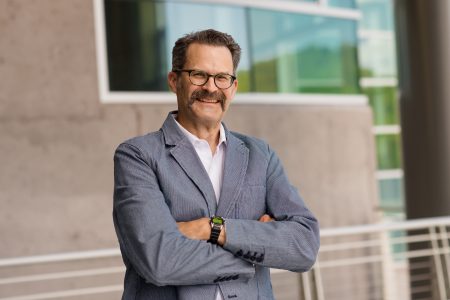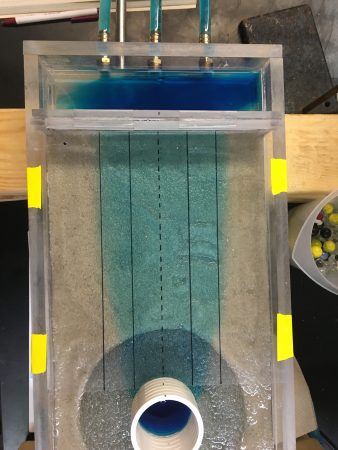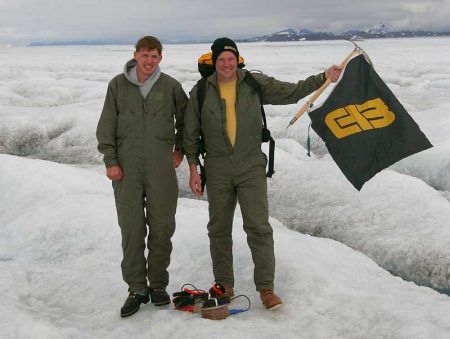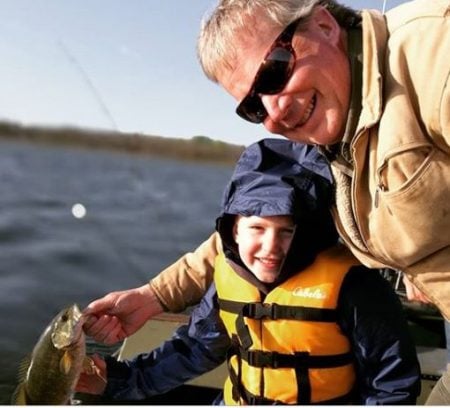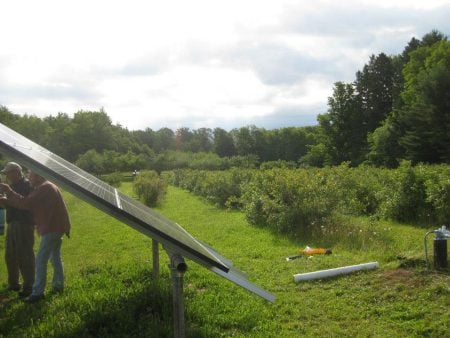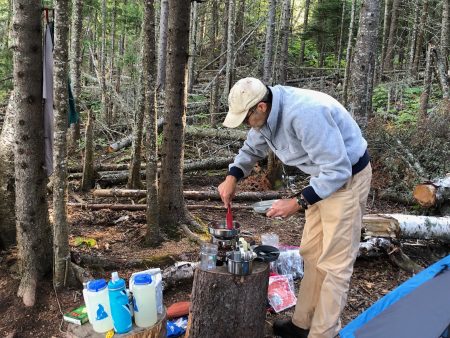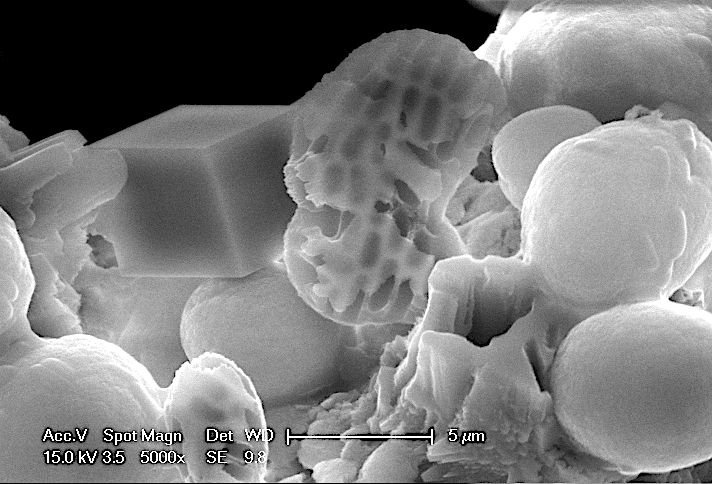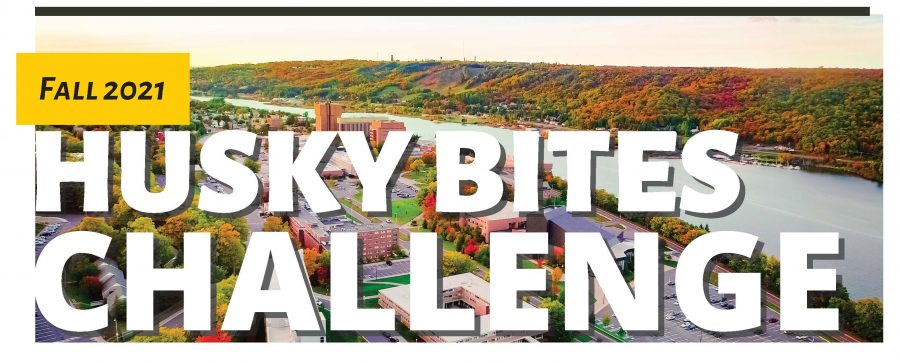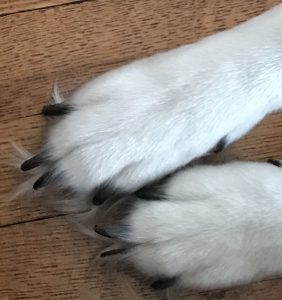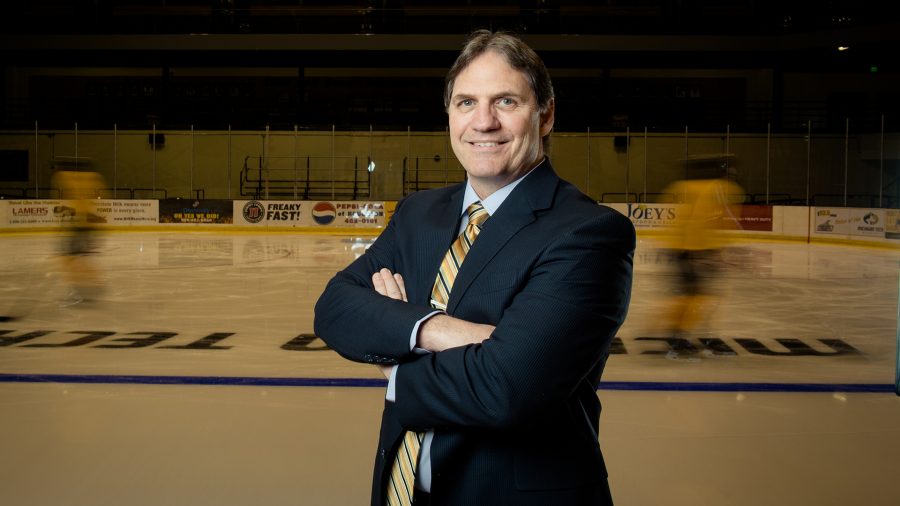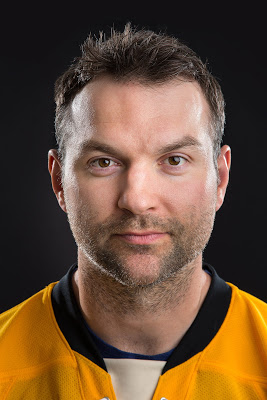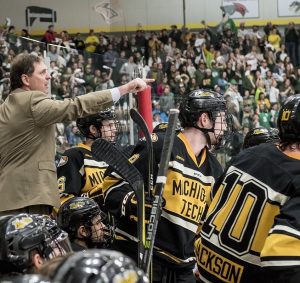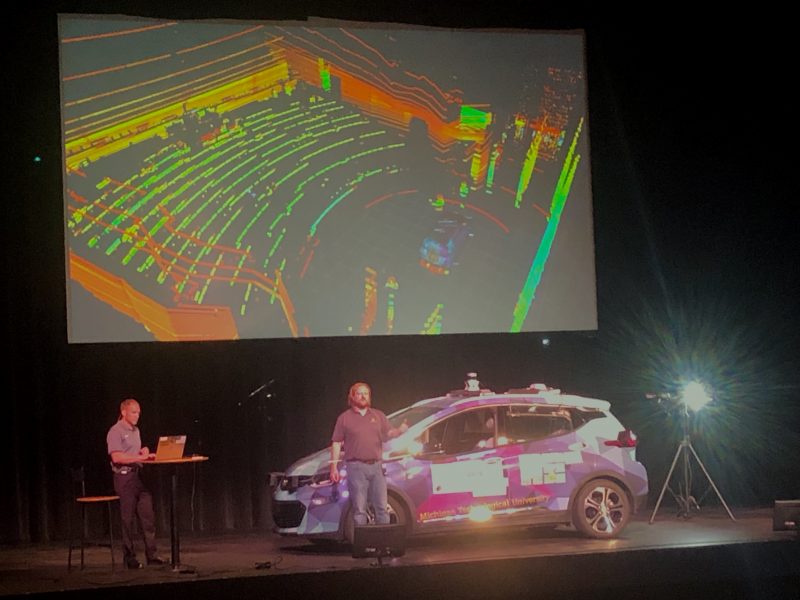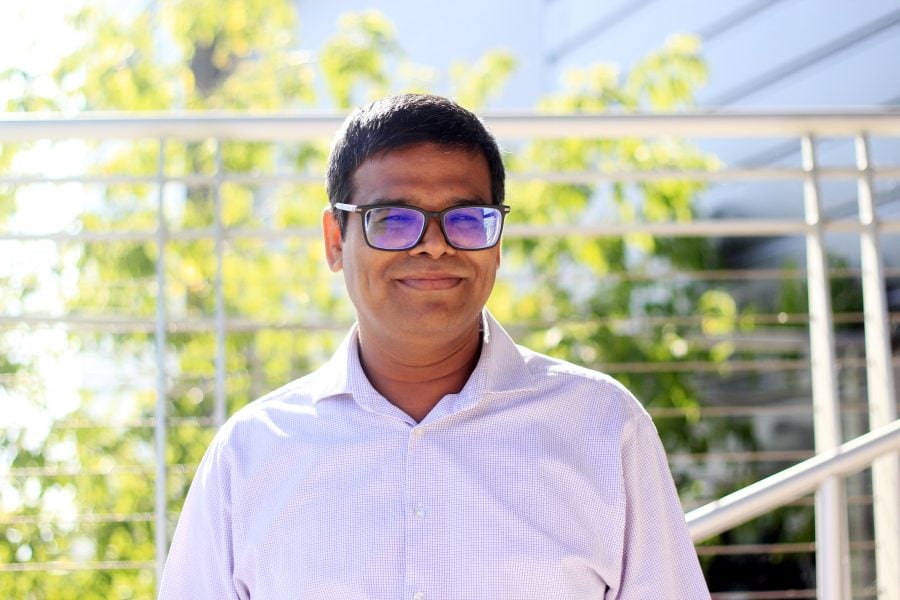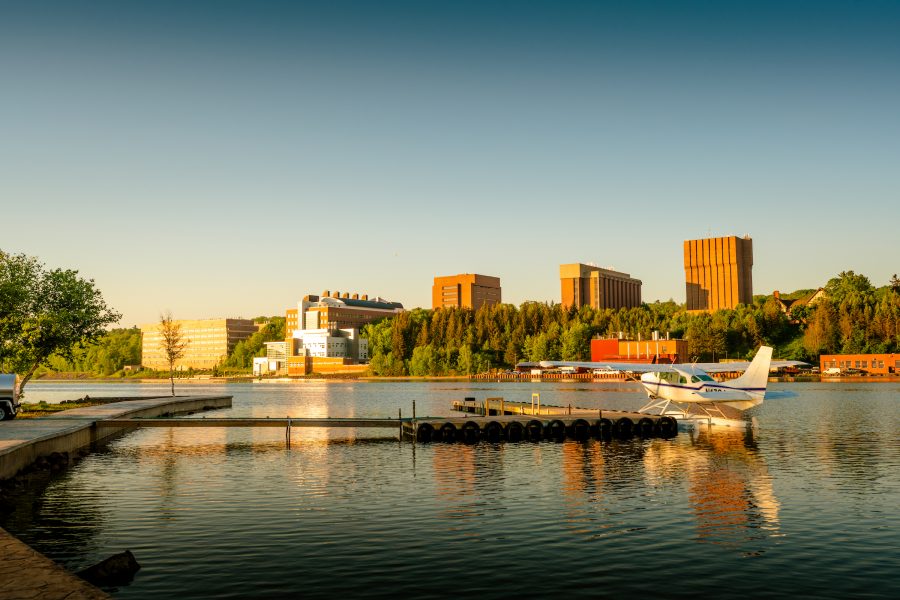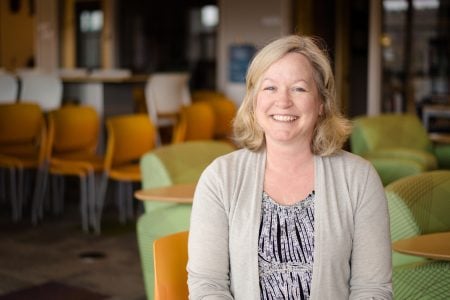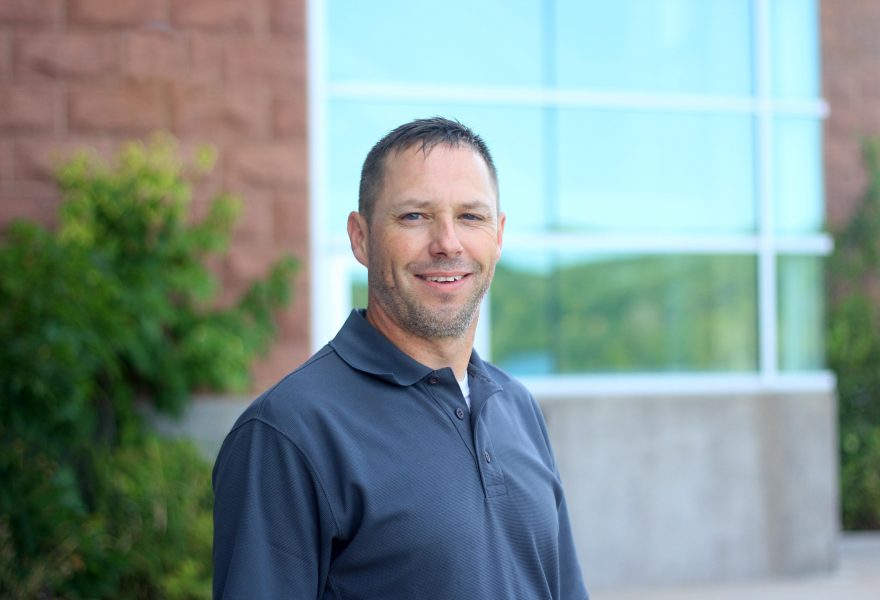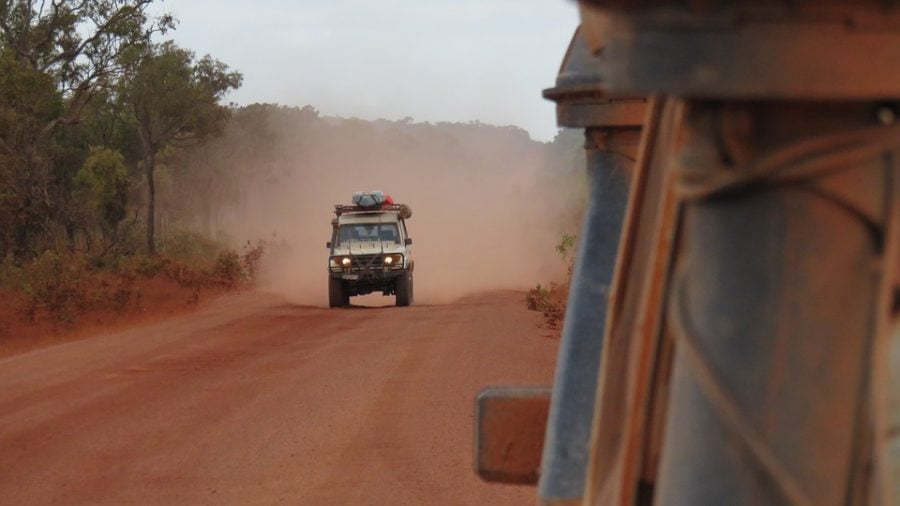
Michelle Jarvie-Eggart shares her knowledge on Husky Bites, a free, interactive webinar this Monday, October 4 at 6 pm ET. Learn something new in just 20 minutes (or so), with time after for Q&A! Get the full scoop and register at mtu.edu/huskybites.
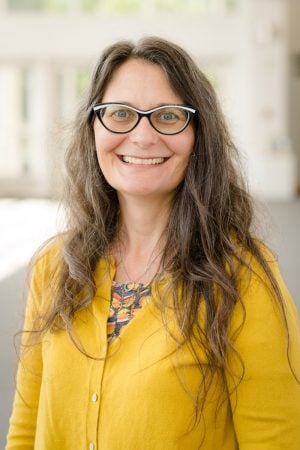
What are you doing for supper this Monday night 10/4 at 6 ET? Grab a bite with Civil, Environmental, and Geospatial Engineering department Chair Audra Morse and Michelle Jarvie-Eggart, assistant professor of Engineering Fundamentals. Jarvie-Eggart will tell us about a unique engineering design challenge conducted in partnership with Engineers Without Borders Australia (EWB-AU).
Instead of the concept of land ownership, Aboriginal Australians believe “the land owns us,” Jarvie-Eggart explains. “It’s not even a sense of stewardship of the land. The belief is that we’re a part of the land.”
Working via Zoom last spring, first-year engineering students at Michigan Tech designed innovative structures for Aboriginal and Torres Strait Islanders in Cape York, Australia: shelters; keeping places for artifacts; and mobile amenities for campsites. During Husky Bites, Prof. Jarvie-Eggart will tell us all about this unique design challenge. She’ll also show us some of the resulting, creative student designs.
Joining in will be Michigan Tech environmental engineering alumna Amanda Singer. While at Tech Singer spent four years working as an undergraduate teaching assistant, aka “LEAP Leader,” and stayed on to earn her Master’s in Environmental Engineering with an emphasis on engineering education. Prof. Jarvie-Eggart was one of her advisors. Singer is now pursuing a PhD in Engineering Education at Ohio State.
“It’s like picking up a piece of dirt and saying this is where I started and this is where I’ll go. The land is our food, our culture, our spirit and identity.”
During their second semester at Michigan Tech, all first-year engineering students choose a design project. It’s all part of a required course called ENG 1102. “In a typical semester, we have sections doing brewery designs, adaptive bike designs, alternative power, and other projects,” says Jarvie-Eggart.
“We started the EWB-partnered project in my section of ENG 1102 in the spring of 2019, with about 100 students. Soon after that, the pandemic began. One of the first things I started doing was evening Zoom office hours, after my kids went to bed. That’s when my Michigan Tech students are doing their homework, “ she says.

“I met with EWB Australia folks over Zoom, too. In my mining engineering days, I routinely worked with iron mines in Australia, so I was used to conference calls late at night. If clients are halfway around the Earth, I’ll make sure to be the one at my computer at an odd time. People are more willing to take meetings with me if it happens within the bounds of their normal work day. If I inconvenience them, or take them away from their family, they are less likely to give me their time.”
The Stanford d. School’s Design Thinking model guides the process in all sections of ENG1102, Jarvie-Eggart explains. “Working cooperatively to solve problems, the key elements are empathy, prototyping and feedback. When we say empathy, though, it’s not what you might think. It’s not about emotions, or feelings, but about putting ourselves in our clients’ shoes. We’re careful not to impose our own definition of what might be a problem, either. Instead we try to see the problem as the client sees it.” It’s a vital first step, says Jarvie-Eggart.
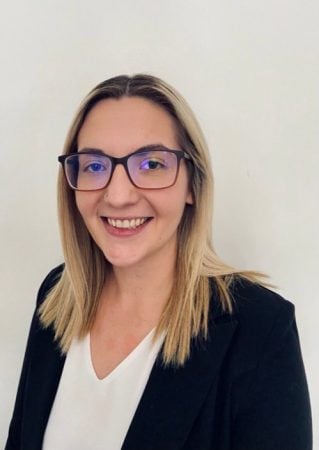
“We also expect students to do a lot of their own research for their projects,” she says. “This can feel odd at first. It can be a challenge to become comfortable with the ambiguity of problem-based learning. What are the important things to consider? What assumptions need to be made and how can you justify them? Why is your design a valid one? This is what we are asking our first-year students to do.”
Jarvie-Eggart couldn’t have all 100 students contacting EWB volunteers and Aboriginal and Torres Strait Islanders in Australia. “That would have been a hot mess,” she admits. Instead they followed a typical RFI (request for information) process one might use in consulting. “Often, project engineers don’t have contact with the client, but the project manager does. So, we organized all our questions. EWB AU had gathered all sorts of resources and information from the host community, which our students reviewed before forming questions to clarify the design purpose or scope, or share initial ideas. I sent those on to EWB staff, who provided answers.”
Once EWB-AU was ready, the Michigan Tech class took part in a Zoom interview Q&A. “We did that so students could see me asking questions and hear answers in real time from EWB staff. We also recorded it for students who couldn’t stay up late to watch. It looked candid—but many of the questions took some time and research to answer.”

And the resulting designs? Jarvie-Eggart will share them during Husky Bites. One shelter design uses low-cost, repurposed items. Another has one open side, but is able to rotate depending on the direction of the wind during a storm.
“For me, the best part is seeing my students become excited about the impact engineers can make on a global scale,” she adds. “Many of them now express interest in doing international work, or using their professional skills to volunteer or give back to society once they become engineers.”
During the class, Singer, with four years of experience as a first-year engineering LEAP leader, collected data to asses the impact of ENG 1102 course on the students. What did they take away? “In their responses, most of the students mentioned words and phrases such as ’empathy’, ‘working on a global scale’, ‘humanitarian’, ‘community’, and ‘sustainability,’” Singer notes. “Students became more community-minded and aware of the cultural context of their designs.”
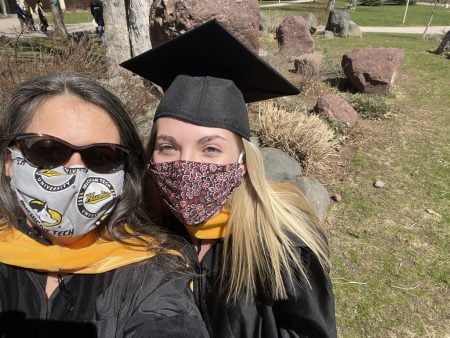
“Amanda is now a PhD student at Ohio State and I couldn’t be more proud of her,” adds Jarvie-Eggart. “She is going to be a really great faculty member some day, maybe even at Tech if we are lucky.”
Each year EWB-AU hosts a different first-year engineering challenge. “Although, this semester, due to COVID, we will work with the same Cape York community,” says Jarvie-Eggart.
Michigan Tech is only the second university in the US to take part in the EWB AU Challenge. “I saw a paper at an American Society of Engineering Education conference, written by the first school to implement the project in the US, in Colorado. So I tracked down the authors, asked them about it, and they offered to get me in contact with the EWB AU folks,” Jarvie-Eggart recalls.
“EWB USA is working on developing their own design challenge for first-year engineering students, too. Once they get that up and rolling, we look forward to working with them, as well.”
Jarvie Eggart knows a meaningful educational opportunity when she sees one. She earned her BS in Environmental Engineering at Michigan Tech, then an MS in Environmental Policy. After working in industry, she returned to Michigan Tech to earn a PhD in Environmental Engineering and a certificate in Sustainability, then returned to industry again. All in all, Jarvie-Eggart has over a decade of work experience in compliance, permitting, and sustainability issues for mining, as well as the municipal water and wastewater industries.
“I’m very passionate about sustainability,” she says. My goal by working in industry was to help make a difference for the corporations that needed it the most, namely the extractive industries like mining, and oil and gas,” she says.
Now she’s found another important place to make an impact. “I have experience teaching graduate students online as an adjunct faculty member,” she says. “But first-year students are an entirely different ball of wax. The first year of college is when students learn the essential skills they’ll carry with them for life,” she says. That’s huge!”
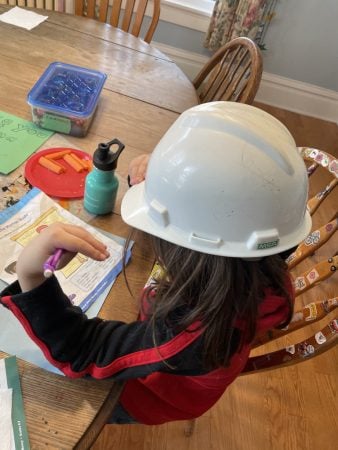
Prof. Jarvie-Eggart, how did you first get into engineering?
My father was an electrical engineer (and a Michigan Tech grad). He sparked my love of engineering at an early age. I always loved math and science, and I knew about engineering as a career path because I had one in the house. The hard part for me was deciding upon which type of engineering. When I hit high school chemistry, I narrowed it down to either chemical or environmental engineering. Ultimately, I settled on environmental engineering.
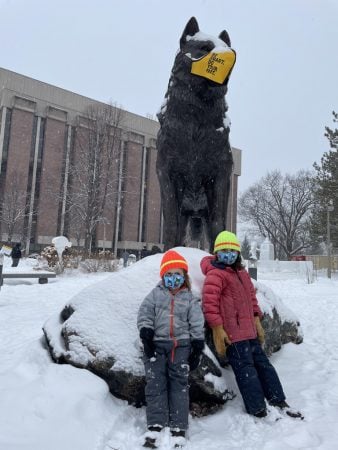
Hometown?
I am originally from Green Bay, Wisconsin. But I have lived in the UP for over 25 years. I met my husband, Brian, at Michigan Tech while we were in grad school. He works at the Advanced Power Systems Research Center. We have two children (5 and 7 years old). My Dad, who will be 86 in October, also lives with us half the year. He normally splits his time between our home and my sister’s in Madison. Due to COVID, he stayed with us all last winter. It is a full house, but there is a lot of love.
What do you like to do in your spare time?
We have two large dogs—one Shepard-mix and one King Shepherd—and a freshwater aquarium. I love to knit, play ukulele, and jog. This summer, I coached a just-pedaling group in the Single Track Flyers mountain bike program. It was a lot of fun. The kids kept picking flowers for me when we were out on rides. I’d tuck them in my ponytail.
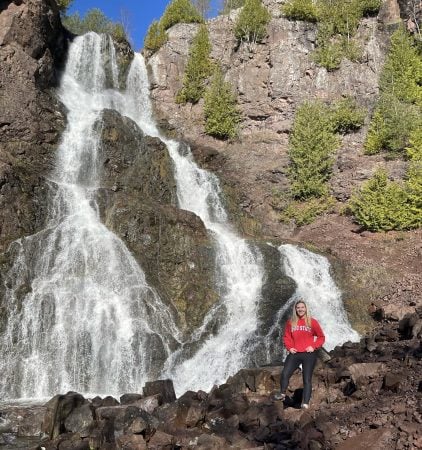
Amanda, how did you first get into engineering? What sparked your interest?
I first became interested in engineering as a high school student. I had always loved math and science and had several teachers encourage me to explore engineering as a potential career path. My decision to pursue engineering as my major in college, though, happened during Preview Day at Michigan Tech. I enjoyed hearing the faculty and students talk about the projects they had worked on. I loved the fact that you could pursue a wide range of opportunities with the degree. I started my first year at Michigan Tech as an general engineering major. Ultimately, I decided on Environmental Engineering, which I pursued for both my bachelor’s and master’s degrees.
Hometown, family?

While I currently reside in Columbus, Ohio, I was born and raised in St. Clair, Michigan. My fiancé, who graduated with a chemical engineering degree from Michigan Tech, currently works as a plant engineer in Phoenix. He’s in the process of transferring to his company’s location in Columbus. We spend much of our free time planning our 2023 wedding in the Keweenaw! My parents now spend most of their weekends traveling either to visit me, or my younger sister who is attending Virginia Tech while pursuing a PhD in Human Development. While we all miss the Keweenaw, we love being able to explore some new places!
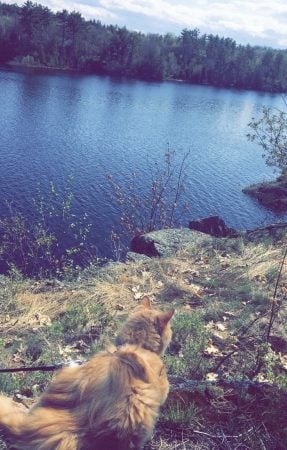
What do you like to do in your spare time?
I enjoy hanging out with my friends and family, traveling, reading, biking, and crocheting. I have a cat named Kronk, (adopted from the Copper Country Humane Society). He likes to join me when camping and hiking. Recently, I began training for the Door County triathlon (in Wisconsin). My mom and I will be competing together next summer!

